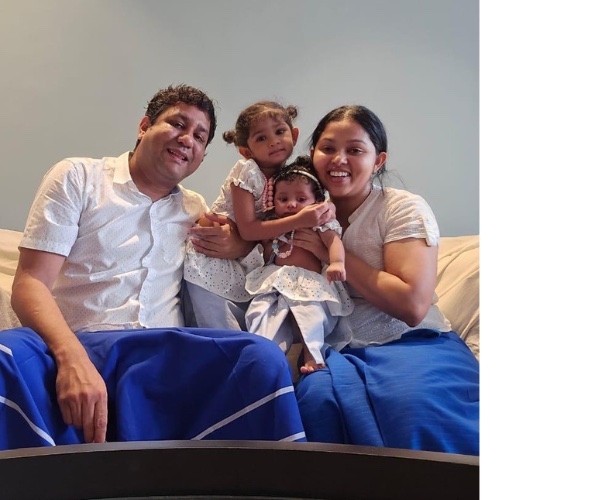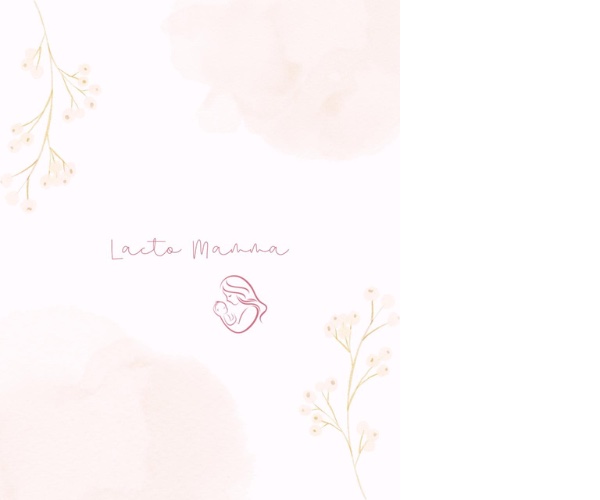
May 28 2024.
views 600The new mother stared at her crying newborn, a knot of worry tightening in her stomach. Breastfeeding, something that seemed natural, felt frustratingly elusive. Latching was awkward, her nipples were sore, and the constant feeding felt overwhelming. "Am I doing this wrong?" she wondered.
Breastfeeding is often portrayed as a blissful bonding experience, but for many new mothers, it's a challenging journey filled with unanswered questions and self-doubt. Dr. Bharathi Baranage understands this struggle all too well. Her own breastfeeding experience fuelled a passion to empower mothers and revolutionise support systems.
Dr. Baranage's much-needed initiative goes beyond offering practical tips. It aims to ignite confidence and equip mothers with the knowledge they need to navigate their unique breastfeeding paths. As she pursues her certification as a Breastfeeding Specialist, Dr. Baranage's unwavering goal shines brightly: to ensure every mother feels informed, supported, and empowered on this vital journey of motherhood.

What initially drew you to specialise in maternal wellness and breastfeeding support?
I’m actually a trainee in Tuberculosis & Chest Diseases at the Post Graduate Institute of Medicine Colombo. My journey on maternal wellness and breastfeeding support was deeply influenced by my personal experiences and the gaps I observed in the support systems available to mothers in Sri Lanka. I’m also currently reading to be a Certified Breastfeeding Specialist.
The importance of a structured breastfeeding support programme became evident to me during my breastfeeding journey. While there are support services available, accessing them can be challenging immediately after delivery. Additionally, the online resources that exist can often be difficult for non-medical mothers to understand, and no hungry baby will wait till their mamas learn how to breastfeed. This is the very reason most mothers opt for mixed or formula feeding which would compromise their milk supply. This highlighted a significant gap in Sri Lanka—a need for a comprehensive, accessible, and easily understandable programme on breastfeeding.
My motivation to create such a programme was further reinforced by my experiences during my second pregnancy. I vividly remember the stress and exhaustion of the first few days postpartum. My baby was crying incessantly, and it turned out that I was breastfeeding incorrectly, leading to poor latching. Despite my pain and tiredness, I had to physically visit the hospital to resolve the issue. At that moment, I realised the immense value an online resource could have provided. If I had access to immediate, reliable online support, it would have alleviated much of the stress and confusion I experienced.
These personal challenges and the recognition of the support gap in our healthcare system inspired me to develop a programme aimed at helping mothers avoid such stressful situations. My goal is to provide prenatal education and postnatal support that is accessible, practical, and comprehensible, ensuring mothers have the resources they need to successfully navigate their breastfeeding journey.
How do you empower mothers to make informed decisions about breastfeeding and navigate any difficulties they might encounter?
This is at the heart of my work on @lacto.mamma. Here’s how I approach this:
Why did you decide to leverage Instagram as a platform to share your expertise?
I chose Instagram primarily because of its visual nature. Instagram excels at delivering information through images and videos, which can be more engaging and easier to understand than long paragraphs of text. This is particularly important when addressing topics like breastfeeding, where visual demonstrations of techniques can be incredibly helpful for mothers.

Visual content allows for a quicker grasp of essential concepts, making it easier for mothers to absorb and apply the information in real-life situations. Instagram also offers interactive features, such as live sessions and story Q&As, which enable real-time engagement and personalised support.
While Instagram is my starting point, I recognise the value of expanding to other platforms. Facebook, with its numerous forums and discussion groups, offers another avenue for fostering community and facilitating deeper conversations. Additionally, I plan to utilise TikTok in the future because short, demonstrative videos can be highly effective for teaching breastfeeding techniques and other maternal wellness practices.
Your Instagram account is a valuable resource for mothers. Can you tell us more about the specific types of content you share?
Absolutely! At @lacto.mamma, my mission is to empower and support both prenatal and postnatal mothers through valuable, accessible information specifically focused on breastfeeding. For prenatal mothers, I concentrate on preparation. This includes tips and advice on getting ready for breastfeeding, understanding its benefits, and learning about techniques and positions that can make breastfeeding easier from the start. I share practical advice, expert insights, and personal experiences to help expecting mothers feel confident and well-prepared to begin their breastfeeding journey.
For postnatal mothers, @lacto.mamma serves as a quick and easy-to-navigate resource for all things related to breastfeeding. I provide information on topics such as breastfeeding techniques, troubleshooting common challenges, maintaining milk supply, and balancing breastfeeding with daily life. My goal is to make reliable, supportive information readily available to new mothers, helping them to navigate the breastfeeding stage with confidence and ease.
Every Sunday, I hope to host an Instagram Live session where I discuss various topics related to breastfeeding. These live sessions provide an interactive space where mothers can ask questions, share their experiences, and receive immediate support and advice. Among the most common challenges we address are issues with milk supply and latching. These are frequent concerns for many new mothers, and I dedicate significant time to offering practical solutions and strategies to overcome these obstacles.
In addition to the live sessions, I regularly create posts that highlight key points from these discussions. These posts serve as a quick reference guide for mothers who might have missed the live sessions or want to revisit important information. By focusing on specific challenges such as supply and latching, and offering evidence-based advice, my content aims to empower mothers with the knowledge and confidence they need to successfully breastfeed.

Social media offers a unique space for real-time conversations and diverse perspectives. How do you see these features of social media impacting open discussions about maternal wellness and breastfeeding?
Social media is indeed an effective tool for facilitating open conversations about maternal wellness and breastfeeding. The COVID-19 pandemic significantly accelerated the shift to online platforms, and many people, including those in Sri Lanka, have become increasingly comfortable seeking and sharing information online. Social media has emerged as a primary resource where mothers can access reliable information, support, and community engagement regarding breastfeeding and maternal wellness.
One of the key advantages of social media is its accessibility. It allows for real-time interaction and the sharing of diverse experiences and advice. Platforms like Instagram enable me to reach a wide audience, provide instant support, and create a sense of community among mothers who might otherwise feel isolated. Through live sessions, informative posts, and interactive discussions, social media can effectively address common concerns and foster an open dialogue about maternal wellness.
However, it's important to acknowledge that societal taboos and the desire for personalised conversations still exist. Many mothers prefer private, one-on-one interactions to discuss sensitive topics. Therefore, while social media is an excellent platform for broad discussions and community support, having direct access to personalised consultations remains crucial, especially for immediate postpartum mothers. This combination ensures that mothers receive both the collective wisdom of a community and the tailored advice they need for their unique situations.
What are some of the key messages you emphasise to mothers about the importance of self-care during this crucial time?
Self-care is essential for successful breastfeeding, and I emphasise several key messages to mothers about its importance during this crucial time:
What are your future plans?
My primary mission is to help mothers successfully breastfeed by providing comprehensive support and information. This includes offering valuable insights and guidance during the prenatal stage and being available to assist mothers through any difficulties in the postnatal period.
Regarding plans, my focus will remain on breastfeeding support, as I believe it's a critical area where mothers need reliable and consistent help. I plan to continue expanding my content and resources to ensure that mothers have access to the most up-to-date and practical information on breastfeeding. This will include:
0 Comments